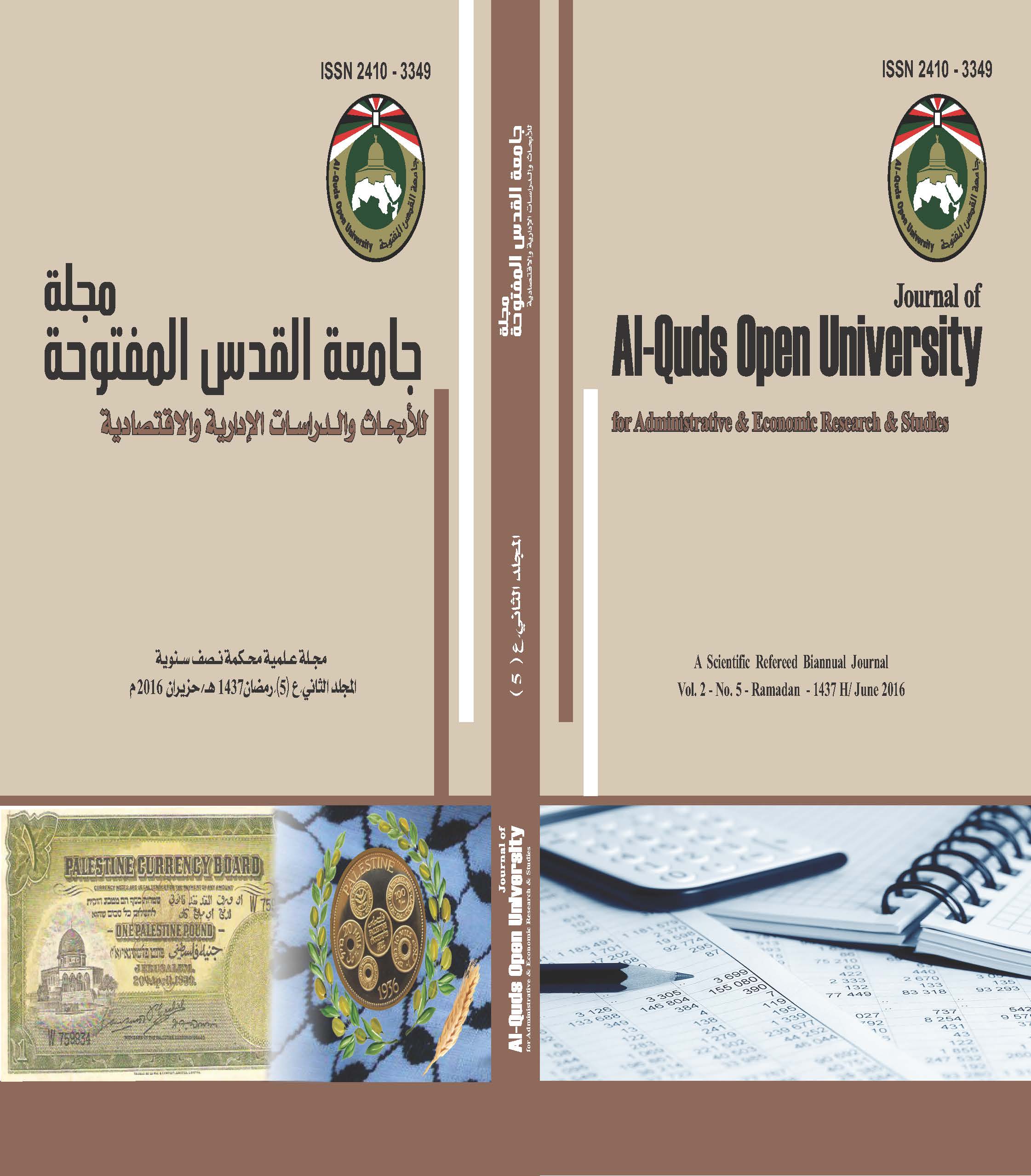الصراع التنظيمي وتأثيره على أداء الموظفين العموميين في المؤسسات الحكومية الفلسطينية
الكلمات المفتاحية:
الصراع التنظيمي، الأداء الوظيفي.الملخص
هدفت هذه الدراسة إلى معرفة أثر الصراع التنظيمي بين العاملين في الوظيفة العامة على الأداء الوظيفي في المؤسسات الحكومية الفلسطينية، كما تسعى إلى معرفة أسباب الصراع التنظيمي بين العاملين في الوظيفة العمومية، ومظاهره وأشكاله، وأساليب علاجه، وقد استخدم الباحثان لتحقيق هذا الهدف المنهج الوصفي التحليلي، وذلك من خلال استبانة صُممت لهذا الغرض، وقد وُزعت على عينة عشوائية بنسبة 15% من أعداد الموظفين في أربع وزارات فلسطينية تمثل الوزارات كافة، ومن أهم النتائج التي توصل إليها الباحثان، أن من أهم أسباب الصراع التنظيمي في المؤسسات الفلسطينية التمييز بين الموظفين في الترقيات والمزايا الوظيفية، وتداخل المهام وازدواجية الأعمال المطلوبة من الموظفين، ما يدفعهم إلى الاختلاف، وجمود الهيكل التنظيمي، إضافة إلى أن هناك علاقة ارتباطية قوية بين الصراع التنظيمي والأداء الوظيفي، حيث تبدو ملامح الصراع في المناكفات والخلافات الشخصية، والتحزبات والمحاور الجماعية، والتمارض والتغيب عن العمل، أو التوجه إلى القضاء الفلسطيني. وقد أوصى الباحثان بوجوب قيام المؤسسات الرسمية الفلسطينية بإيلاء موضوع الصراع التنظيمي اهتماما أكبر، والعمل على تحديث الهياكل التنظيمية، وتوضيح المهام والمسؤوليات وخطوط الاتصال، والالتزام بنظم واضحة وعادلة وصريحة، خاصة بالمسارات الوظيفية من حيث التعيين والترقية والتسكين، وكذلك تقديم الحوافز والمكافآت على أساس الجدارة والاستحقاق.
التنزيلات
منشور
كيفية الاقتباس
إصدار
القسم
الرخصة
- الالتزام التام بأخلاقيات البحث العلمي.
- الالتزام التام بحقوق الملكية الفكرية.
- حقوق الطبع والنشر تؤول للمجلة.
- الحصول على موافقة المجلة لإعادة نشر البحوث أو ترجمتها.
- الالتزام التام بتعليمات هيئة تحرير المجلة.













